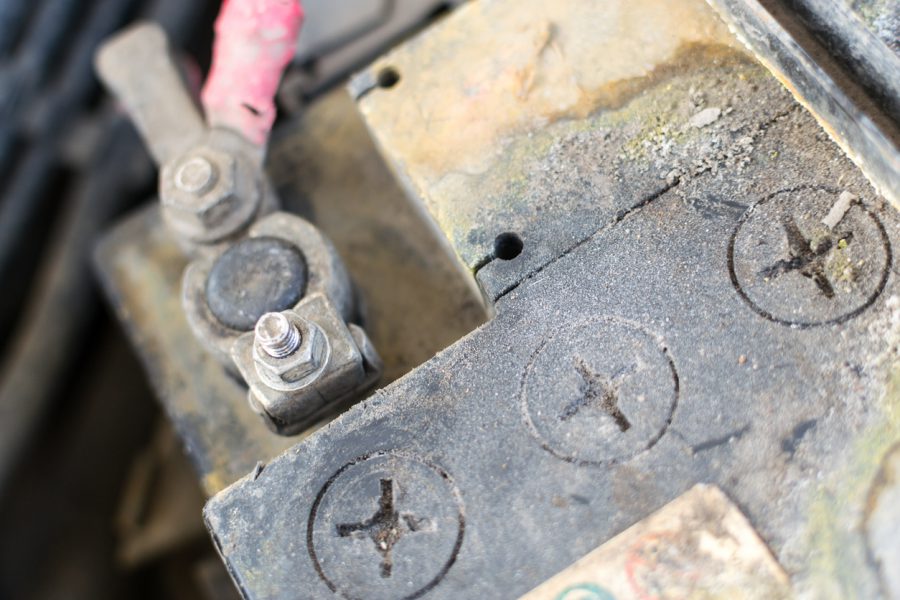
As car batteries age, they will begin to corrode. While a small amount of corrosion will generally not affect your battery’s performance, larger buildups can be highly problematic for your vehicle.
What can cause batteries to corrode faster than normal?
The vast majority of corrosion will occur on your battery’s terminals. As hydrogen gas is emitted by the sulfuric compound found within batteries themselves, it can become trapped beneath your hood and instigate corrosion.
Loose terminals and/or leaks can also lead to battery corrosion. If your battery is cracked in any way, it can start leaking acid which is extremely dangerous to your engine.
A major warning sign for battery corrosion is the appearance of green, blue or white material on its terminals.
What impact does corrosion have on your battery?
In order for your vehicle to properly run, the electrical charge produced by your battery needs to be transferred to your engine. Corrosion can negate the fluidity of the transfer process and limit the current’s effectiveness which will affect the internal power dynamics within your engine.
The inability to start your vehicle is the most common problem that arises from battery corrosion. If you have to jumpstart your car multiple times, you need to have your battery replaced. Continuing to rely on jumpstarts could cause accessories such as cabin lights, onboard computer or your audio system to suffer long-term damage.
What preventative steps can you take?
When you first notice corrosion on your terminal(s), be sure to clean it off right away using a wire brush along with a water and baking soda solution. If you’re uncomfortable doing this or are unsure how to properly clean your battery, bring your vehicle to a professional mechanic and have them perform the cleaning as well as a quick inspection of the system.
If you have any questions regarding your vehicle’s battery or any other component, call Foreign Accents at 336-294-2137 – our ASE-certified technicians are here to help keep you safely on the Piedmont Triad roads year-round!
